April 1, 2017 marked another successful Hoosier Women’s History Conference at the Indiana State Library. This year’s theme was “Hoosier Women in Science, Technology and Medicine.” The attendees heard talks about Indiana native Melba Phillips, who pioneered physics theories, studied under the famous J. Robert Oppenheimer and advocated for women’s place in science research. We listened to talks about Gene Stratton Porter, author and naturalist, and learned how Hoosier women continued to be at the forefront in one of the first public ecology movements, removing phosphates from laundry detergent.
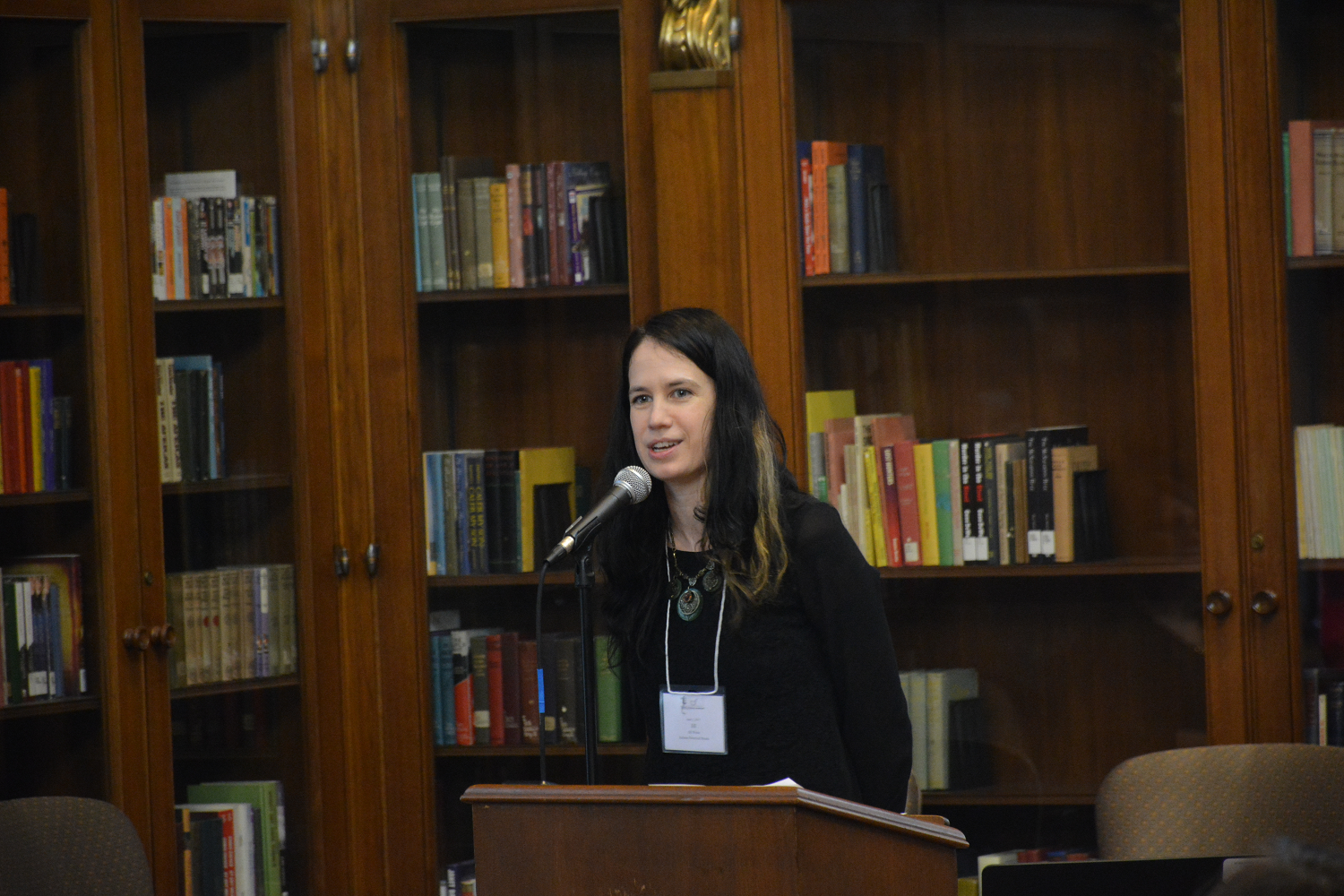
Jill Weiss of the Indiana Historical Bureau speaks about Melba Phillips
In a fascinating lunch time presentation about the ways women’s bodies are ignored by science and industry in making products designed solely for women’s use, Dr. Sharra Vostral presented “Toxic Shock Syndrome, Tampon Technology, and Absorbency Standards.”
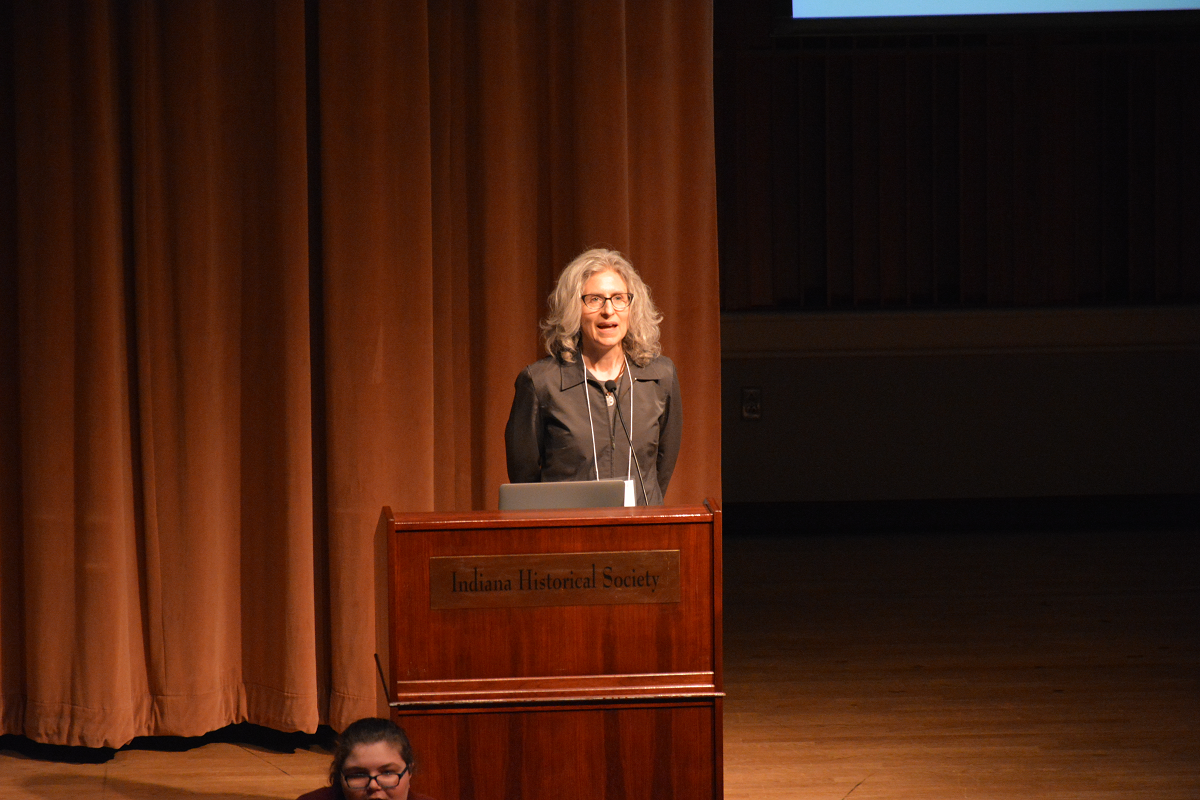
Keynote speaker, Sharra Vostral
There were sessions on women pioneers Dr. Edna Gertrude Henry, founding director of the Indiana University (IU) School of Social Work, and Dr. Emma Culbertson, surgeon and physician. The presentations covered how they overcame gender discrimination to practice and teach in the field of medicine. Speakers also told us about the many women who broke barriers at IU that had long blocked them from pursuing careers in medicine and public health. Dr. Vivian Deno, Purdue University, talked about Dr. Kenosha Sessions, the long-serving head of the Indiana Girl’s School and her mission to use scientific methods to retrain young women and Dr. Elizabeth Nelson, from the Indiana Medical History Museum, discussed how using technology in making a patient newspaper provided a forum for self-expression and promoted patient literacy and self-confidence.
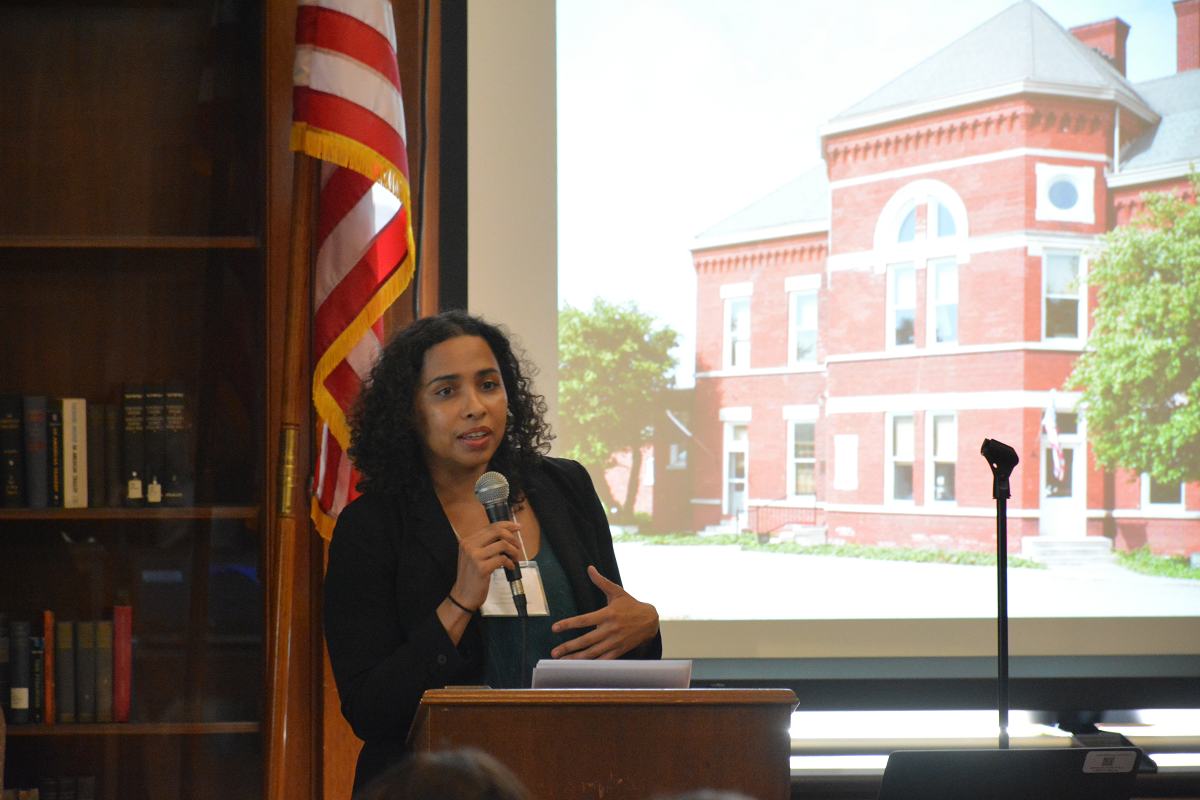
Elizabeth Nelson of the Indiana Medical History Museum
Jessica Jenkins, from Minnetrista in Muncie, Ind., gave an interesting talk on the Ball family women and their fight for improvements in improving sanitation, hygiene and medical access, while Rachel Fulk told about the discrimination that African-American women faced in 1940s Indianapolis in obtaining medical information about birth control. Nancy Brown reminded us of Jeanne White’s fight to educate others about AIDS so her son Ryan could attend school while a group of women in Kokomo were also searching for scientific information about the disease to keep their own children safe. There were talks about the 19th and 20th century and “Scientific Motherhood,” using scientific and medical advice to raise children healthfully.
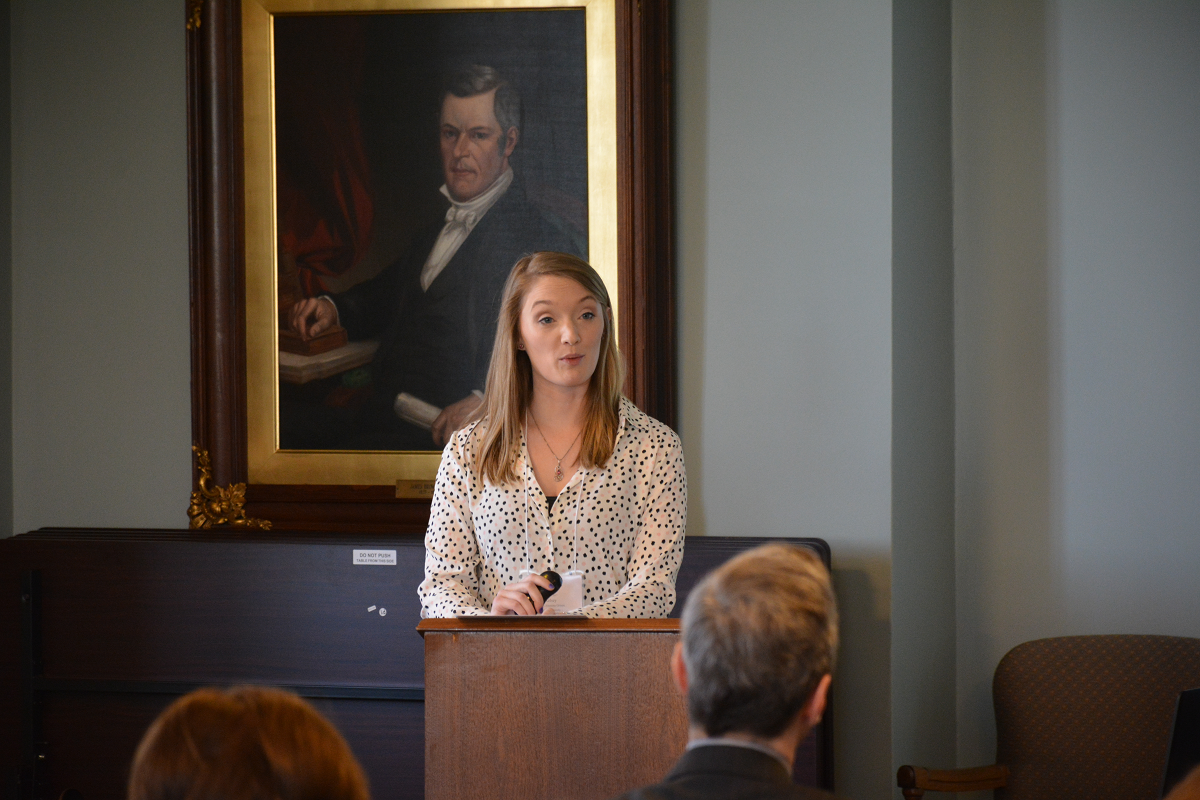
Kelsey Emmons of the Indiana State University Glenn Black Laboratory
Sessions also highlighted the fight of many to enter the fields of scientific study at Purdue University and the many unrecognized women in in the field of archaeology. Dr. Alan Kaiser, University of Evansville, gave an engrossing talk on how a noted archaeologist “stole” the work of Mary Ross Ellingson and published it as his own.
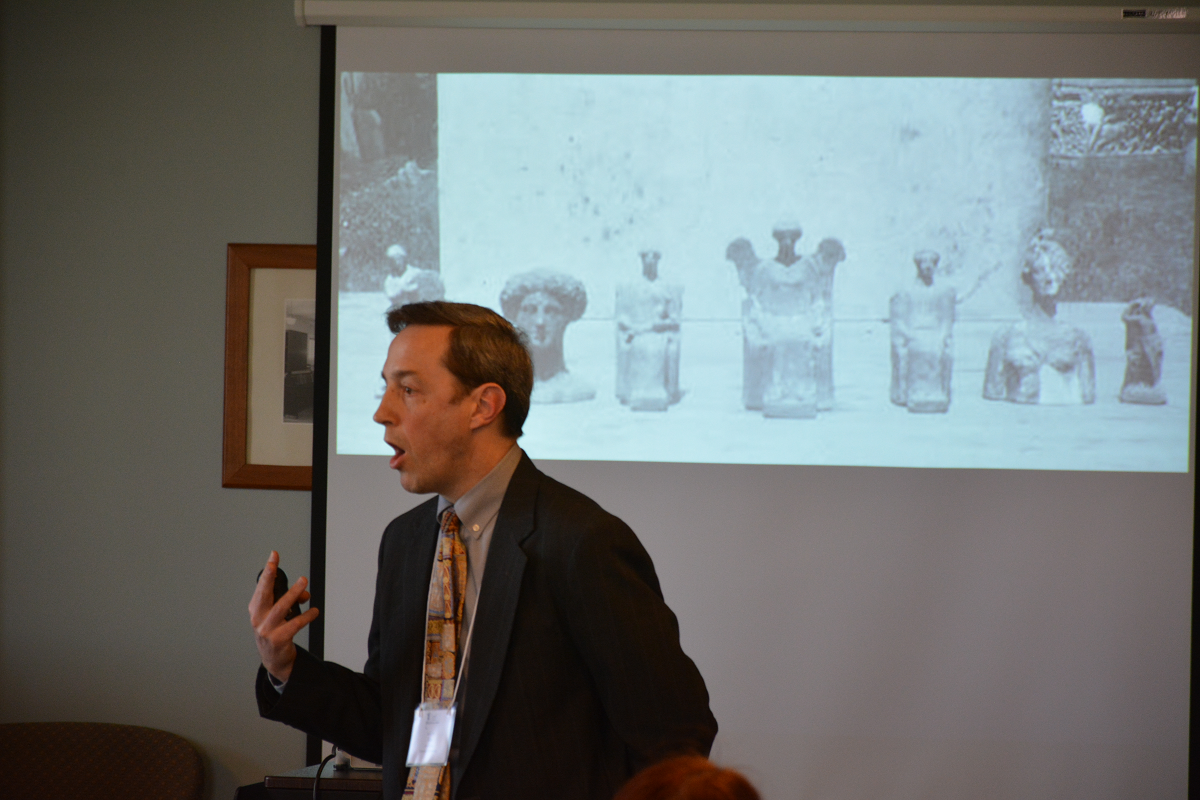
Alan Kaiser, University of Evansville
To cap the day off The Indiana Women’s History Association President Jill Chambers, presented IUPUI student Annette Scherber with a $500 prize for the best student paper presented at the conference, “Clean Clothes Vs Clean Water, Hoosier Women and the Rise of Ecological Consumption.”

Women’s History Association President Jill Chambers presents Annette Scherber with a $500 prize for the best student paper
Look for the third annual Hoosier Women at Work, Women’s History Conference next spring. The topic will be Hoosier Women in the Arts!
This blog post is by Reference and Government Services Division. For more information, contact us at (317) 232-3678 or send us a question through Ask-a-Librarian.
